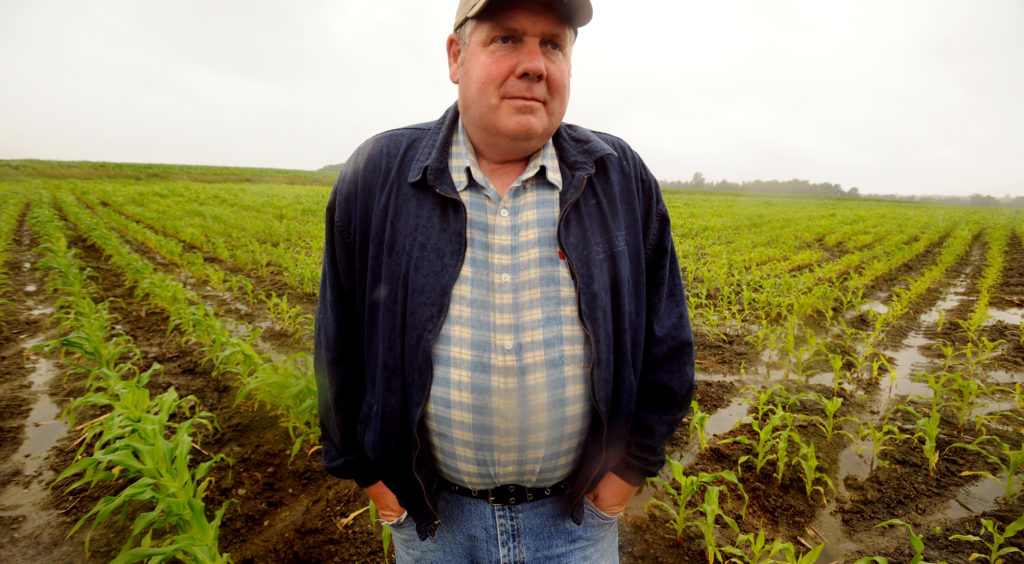What are the causes of stress among farmers?
This is part one of a two-part series on stress on the farm.

For farmers and homesteaders, their lifestyle can feel like their calling. They want to work outdoors, provide food for their family or community and tend to the land. It is fulfilling, but it can also be exceptionally stressful, especially because the causes of stress are quite unlike those of any other occupation.
“Farming happens to be one of the more stressful occupations that people engage in in the United States,” said Sean Brotherson, professor and extension family science specialist North Dakota State University. “There’s research that suggests it’s consistently among the top ten most stressful [and dangerous] occupations.”
Pinpointing the causes of stress in a given farmer’s life, which can include anything from market forces to family tensions, can help pave the way for dealing with stresses in a healthy and effective way.
Why are the causes of stress in farming?
Bonnie Braun, professor emerita of family science at the University of Maryland, divides the causes of stress on a farm into two main categories. The first is ordinary stressors, which are more universal: the weight of daily responsibilities like juggling multiple jobs, feeling lonely, or managing illness, injury and family tension.
The second category is extraordinary stressors, which are farm-specific: the high upfront cost of farm machinery, swings in the agricultural economy or increasing weather uncertainties related to climate change, to name a few.
Braun said that extraordinary factors can be especially distressing because they are largely out of an individual’s control.
“Things that are beyond your control tend to lead to elevated levels of stress,” Brotherson said. “It’s frustrating to be subject to something that you don’t directly control.”
Though people in many different occupations experience family stress, Brotherson also pointed out that farming careers are often exceptionally interwoven with family life.
“A lot of people in farming are in business with family members,” Brotherson said. “It’s hard to escape the business pressure and say, ‘Our family is separate from that.’ Families tend to be one of our biggest sources of support, so if the relationships are sour and negative that just becomes an additional source of stress.”
Planning succession and inheritance of farmland can also strain family relationships.
“Certainly in New England, we’re looking at trying to transition a large number of farms to successors,” said Leslie Forstadt, human development specialist at the University of Maine Cooperative Extension and director of the Maine Agricultural Mediation Program. “Whether those successors are family members or not that can cause internal stress within a family.”
Many farmers also consider farming or homesteading to be more than an occupation — it becomes part of their identity.
“If it’s a way of life that somebody has chosen is threatened, that is very stressful,” Brotherson said.
The threat of losing a farm or losing your job as a farmer is thus not just a case of losing an income — it is a loss of identity and, often, of home.
“There’s a lot of issues legally, financially [and] practically, but it’s also very much an emotional and psychological experience,” Brotherson said. “People have a strong psychological tie to the land that they live on. There’s grief and loss when someone goes through that.”
The stigma around stress in farming
The culture around farming and farmers also contributes to a lack of communication about stress.
“Farmers have historically been private about their feelings,” Braun said. “If you ignore or don’t express your feelings, it gets bottled up inside you or it pops out in ways that are not healthy for you or people around you.”
Forstadt noted a theory called “the agrarian imperative,” which argues that the same attitudes that attract farmers to the profession can also cause its own unique stressors.
“Traditionally, farmers are known as stoic and able to solve their own problems,” she said. “The agrarian imperative is [the] notion that folks that are super capable and adept at solving problems on the farm feel pressure that they should be able to solve their own problems when it comes to mental health or inter-family conflict.”
But the agrarian imperative does not separate individual responsibility from the systemic forces that work against farmers.
“There really are systemic forces against succeeding in farming,” Forstadt said. “As good as you are at what you do, if the system is not supporting you to live, that’s not your fault. And yet, if the message is, you should be able to do this if you just work hard enough.”
Part 2 of our “What you need to know about farm stress” series will cover tips for managing stress on the farm and why doing so is important.
